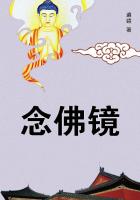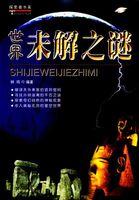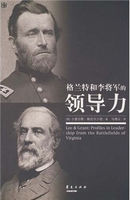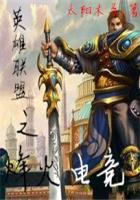Both by calling and conviction Father Brown knew better than most of us, that every man is dignified when he is dead. But even he felt a pang of incongruity when he was knocked up at daybreak and told that Sir Aaron Armstrong had been murdered. There was something absurd and unseemly about secret violence in connection with so entirely entertaining and popular a figure. For Sir Aaron Armstrong was entertaining to the point of being comic; and popular in such a manner as to be almost legendary. It was like hearing that Sunny Jim had hanged himself; or that Mr. Pickwick had died in Hanwell. For though Sir Aaron was a philanthropist, and thus dealt with the darker side of our society, he prided himself on dealing with it in the brightest possible style. His political and social speeches were cataracts of anecdotes and "loud laughter"; his bodily health was of a bursting sort; his ethics were all optimism; and he dealt with the Drink problem (his favourite topic) with that immortal or even monotonous gaiety which is so often a mark of the prosperous total abstainer.
The established story of his conversion was familiar on the more puritanic platforms and pulpits, how he had been, when only a boy, drawn away from Scotch theology to Scotch whisky, and how he had risen out of both and become (as he modestly put it) what he was. Yet his wide white beard, cherubic face, and sparkling spectacles, at the numberless dinners and congresses where they appeared, made it hard to believe, somehow, that he had ever been anything so morbid as either a dram-drinker or a Calvinist. He was, one felt, the most seriously merry of all the sons of men.
He had lived on the rural skirt of Hampstead in a handsome house, high but not broad, a modern and prosaic tower. The narrowest of its narrow sides overhung the steep green bank of a railway, and was shaken by passing trains. Sir Aaron Armstrong, as he boisterously explained, had no nerves. But if the train had often given a shock to the house, that morning the tables were turned, and it was the house that gave a shock to the train.
The engine slowed down and stopped just beyond that point where an angle of the house impinged upon the sharp slope of turf.
The arrest of most mechanical things must be slow; but the living cause of this had been very rapid. A man clad completely in black, even (it was remembered) to the dreadful detail of black gloves, appeared on the ridge above the engine, and waved his black hands like some sable windmill. This in itself would hardly have stopped even a lingering train. But there came out of him a cry which was talked of afterwards as something utterly unnatural and new. It was one of those shouts that are horridly distinct even when we cannot hear what is shouted. The word in this case was "Murder!"But the engine-driver swears he would have pulled up just the same if he had heard only the dreadful and definite accent and not the word.
The train once arrested, the most superficial stare could take in many features of the tragedy. The man in black on the green bank was Sir Aaron Armstrong's man-servant Magnus. The baronet in his optimism had often laughed at the black gloves of this dismal attendant; but no one was likely to laugh at him just now.
So soon as an inquirer or two had stepped off the line and across the smoky hedge, they saw, rolled down almost to the bottom of the bank, the body of an old man in a yellow dressing-gown with a very vivid scarlet lining. A scrap of rope seemed caught about his leg, entangled presumably in a struggle. There was a smear or so of blood, though very little; but the body was bent or broken into a posture impossible to any living thing. It was Sir Aaron Armstrong. A few more bewildered moments brought out a big fair-bearded man, whom some travellers could salute as the dead man's secretary, Patrick Royce, once well known in Bohemian society and even famous in the Bohemian arts. In a manner more vague, but even more convincing, he echoed the agony of the servant. By the time the third figure of that household, Alice Armstrong, daughter of the dead man, had come already tottering and waving into the garden, the engine-driver had put a stop to his stoppage. The whistle had blown and the train had panted on to get help from the next station.
Father Brown had been thus rapidly summoned at the request of Patrick Royce, the big ex-Bohemian secretary. Royce was an Irishman by birth; and that casual kind of Catholic that never remembers his religion until he is really in a hole. But Royce's request might have been less promptly complied with if one of the official detectives had not been a friend and admirer of the unofficial Flambeau; and it was impossible to be a friend of Flambeau without hearing numberless stories about Father Brown.
Hence, while the young detective (whose name was Merton) led the little priest across the fields to the railway, their talk was more confidential than could be expected between two total strangers.
"As far as I can see," said Mr. Merton candidly, "there is no sense to be made of it at all. There is nobody one can suspect.
Magnus is a solemn old fool; far too much of a fool to be an assassin. Royce has been the baronet's best friend for years; and his daughter undoubtedly adored him. Besides, it's all too absurd.
Who would kill such a cheery old chap as Armstrong? Who could dip his hands in the gore of an after-dinner speaker? It would be like killing Father Christmas.""Yes, it was a cheery house," assented Father Brown. "It was a cheery house while he was alive. Do you think it will be cheery now he is dead?"Merton started a little and regarded his companion with an enlivened eye. "Now he is dead?" he repeated.
"Yes," continued the priest stolidly, "he was cheerful. But did he communicate his cheerfulness? Frankly, was anyone else in the house cheerful but he?"A window in Merton's mind let in that strange light of surprise in which we see for the first time things we have known all along.















